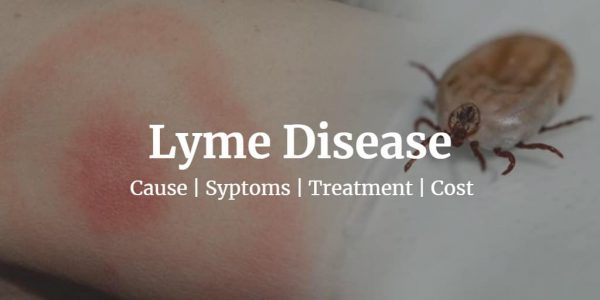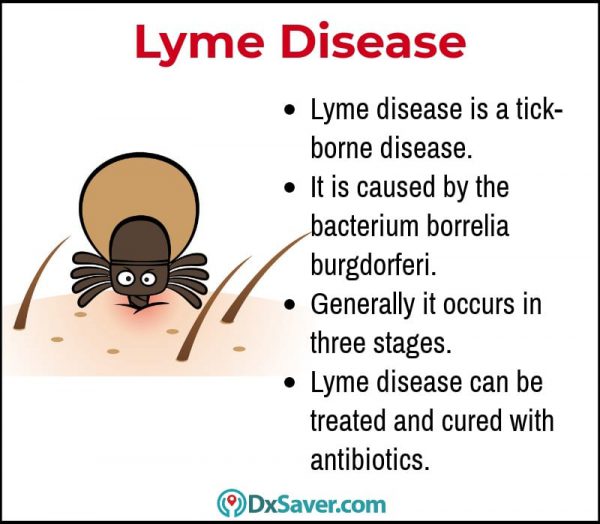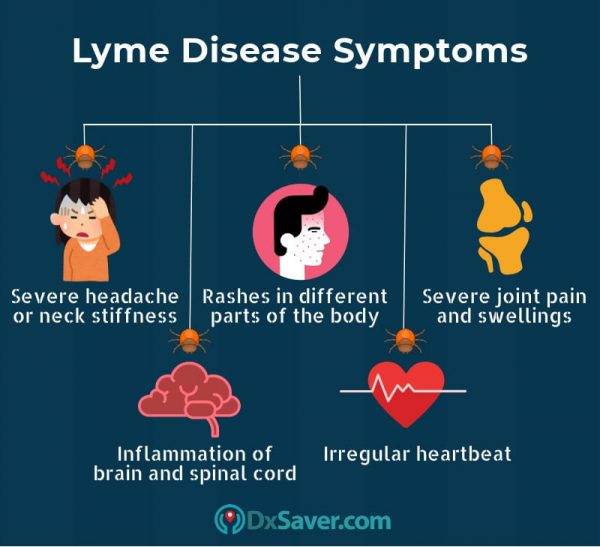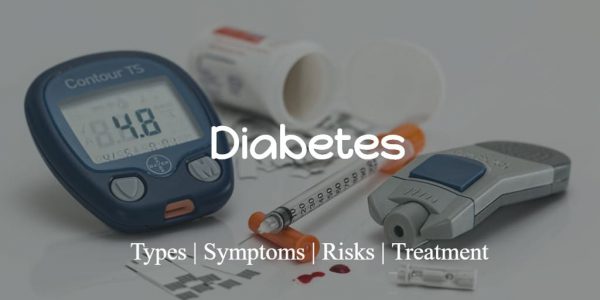
According to the Centers for Disease Control and Prevention (CDC), an estimated number of 3,00,000 people are diagnosed with Lyme disease every year in the United States. Lyme disease can be cured if treated at an early stage. If left untreated, it can lead to severe complications involving the heart, joints, and nervous system. It is one of the fastest-growing infectious diseases in the U.S. So we highly recommend everyone who experiences the any of the symptoms of Lyme disease to get tested for Lyme disease immediately.
The article below covers all the significant topics relevant to Lyme disease test such as the Lyme disease test cost, preparation, treatment for Lyme disease, stages, risks, and how to get tested for Lyme disease test.
- Lyme disease test cost.
- Lyme disease test
- What is Lyme disease?
- Is Lyme disease deadly?
- Who should get tested for Lyme disease test?
- What are the stages of Lyme disease?
- How is the Lyme disease test done?
- Is there any preparation required before the test?
- Are there any risks in the test?
- What does the test result mean?
- What is the treatment for Lyme disease?
- How to prevent Lyme disease?
- Provider Locations
For our readers, who are very much interested in knowing the Lyme disease test cost beforehand, we would like to begin with that section.
How much does the Lyme disease test cost?
Lyme disease test cost ranges between $91 and $159 in different labs and facilities across the U.S. No prior appointment is required. Compare the price, order your test online and visit the nearest lab during lab business hours. Complete the procedure and get the results in your email in 2 to 3 business days. Doctor consultation is also available for further treatment or any kind of medical advice.
The following table shows the Lyme test cost at 2 of our partner laboratories (CLIA – Certified) network located across the U.S.
Name of our Partner Labs | Book Online |
HealthLabs
| Offer Price$159 |
Personal Testing Lab
| Offer Price$91 |
Lyme disease test cost with insurance
Most of the health insurance policies in the U.S. do not cover the cost of the Lyme disease test. Because testing for Lyme disease is challenging and can lead to unnecessary diagnoses and costs. However, the coverage offered by private health insurance companies and national health insurance programs like Medicare and Medicaid varies widely. So we recommend you to check the coverage of your health insurance plan before getting tested for Lyme disease.
Our Lyme disease testing providers do not accept any kind of health insurance plan. But, if the insurance company accepts to reimburse the cost, they can provide you with an itemized receipt containing all the details like the name and code of the test, and CPT code that is necessary for insurance reimbursement purposes.
Lyme disease test
Lyme disease test or Lyme disease antibodies test is a simple blood test done to find out if you have a Lyme disease infection. This test looks for and measures the specific antibodies in the blood that are produced by the immune system in response to the Lyme disease bacterial infections.
What is Lyme disease?
Lyme disease is a tick-borne infectious disease caused by the bacterium Borrelia burgdorferi. This infection is mostly spread through infected deer tick or black-legged tick. As the ticks are very tiny, many people don’t realize when they are bitten. But the longer the infected tick stays on your body, the higher the risks of contracting Lyme disease.
Any person who lives or spends more time in a grassed or heavily wooded area is more likely to get this infection. So it is very important to take common precautions such as covering up the exposed skin and using insect-repellents.
Is Lyme disease deadly?
This disease is not a major life-threatening infection. Lyme disease from ticks can be easily diagnosed with antibiotics. However, the infections need to be reported at its early stage for better and quick recovery, if ignored the disease can cause severe health issues like cardiac problems.

Who should get tested for Lyme disease test?
Your physician might recommend you to get tested for Lyme disease infection if you experience the following symptoms.
- Skin rash that looks like a bull’s-eye (a red ring with a clear center)
- Headache
- Fever
- Chillness
- Dizziness
- Pain and swelling in the joints
- Bone pain
- Neck stiffness
- Shortness of breath
- Swelling in the lymph nodes
- Problems with short-term memory
- Inflammation of the brain and spinal cord
However, the symptoms of Lyme disease also depend on the stage of the disease.
Physicians also recommend people with the following risk-factors to get tested for Lyme disease.
- Recently removed a tick from the body
- Living in the northeastern or mid-western areas of the U.S. where most of the Lyme disease cases occur.

What are the stages of Lyme disease?
Lyme disease can occur in three stages namely early localized disease, early disseminated disease, and late disseminated disease. The three stages of Lyme disease are explained below.
Stage 1 – Rash with Lyme disease (early localized disease)
Lyme disease can be easily cured at this stage. Infected people will start noticing rashes and some flu-like symptoms. At this stage, the infection does not spread to other parts of the body.
Stage 2 – Ticks with Lyme disease (early disseminated disease)
This stage might occur several days or weeks after the bite of an infected tick. During this stage, the bacteria start spreading throughout the body. In addition to the symptoms of early localized Lyme disease, people will also start experiencing numbness in limbs, changes in the vision, and chest pain.
Stage 3 – Chronic Lyme disease (late disseminated disease)
This is the advanced stage of Lyme disease. If left untreated in the first two stages, Lyme disease can cause severe complications such as chronic arthritis, neurological problems, and cardiac problems.
However, the stages can overlap and people infected with Lyme disease might not need to go through all the three stages.
How is the Lyme disease test done?
Lyme disease test is done using the blood sample. During this test, a lab technician or a phlebotomist will cleanse the area to be injected with an antiseptic liquid and wrap a tight elastic band around the upper arm to make the vein visible and swell with blood. He/she then injects a needle to draw a sample of blood and collects the sample in a test tube. After the blood is drawn, he/she covers the puncture spot with a band-aid or a cotton ball to stop bleeding. The collected blood sample is then sent to the lab for analysis.
It takes less than 5 to 10 minutes to perform this test.
The ideal time to get tested for Lyme disease
Physicians recommend waiting for a minimum period of 5 weeks after the tick bite for an accurate diagnosis. Because it is an antibody test and the antibodies can take up to 5 weeks to develop and show up in the blood.
Is there any preparation required before the test?
There is no special preparation required before the Lyme disease antibodies test. There is no restriction on diet and you can carry on your regular activities. Inform the phlebotomist if you have any bleeding disorder before the test.
Are there any risks in the test?
There are no possible risks or complications in the Lyme disease antibodies test. Sometimes, after the blood sample is drawn, you might feel dizziness, slight pain, bruise, or redness in the injected spot for a very little period.
What does the test result mean?
If your Lyme disease antibodies test results are negative, it indicates that you do not have Lyme disease. If your test results are positive, then your physician might order a “Western blot test” to confirm the diagnosis according to the recommendations of the CDC.
If you have any signs or symptoms related to the central nervous system, your physician might also order an additional antibody test that looks for specific antibodies in the sample of cerebrospinal fluid (CSF).
What is the treatment for Lyme disease?
Lyme disease can be treated and cured in all the stages. 14 to 21 days course of oral antibiotics are commonly used to treat the disease in its early stages. The medications used are doxycycline (for adults and children older than 8 years), and cefuroxime and amoxicillin (for younger children, pregnant, and breastfeeding women)
The later stage of Lyme disease that involves the central nervous system is treated with intravenous antibiotics for a course of 14 to 28 days. Sometimes, these intravenous antibiotics can cause various side effects that include a lower white blood cell count, diarrhea, colonization, or other infection.
Some people might experience symptoms such as joint pain and muscle weakness even after the treatment. This condition is known as post-Lyme disease syndrome and the cause of this syndrome is not known to date. In this case, treating with antibiotics is also ineffective.
Vaccine for Lyme disease
There is no potential vaccine for Lyme disease to treat infected humans (there are vaccines for Lyme disease in dogs). However, back in 2002 researchers developed a vaccine against Lyme disease, named LYMErix. But the vaccine short-lived and removed from the market due to the side effects caused.
How to prevent Lyme disease?
Lyme disease can be prevented only by reducing the chances of an infected tick to bite. The following common precautions can be taken to prevent the bite of an infected tick.
- Covering up the exposed skin when in the outdoors
- Using insect-repellents
- Making the yard unfriendly to ticks
- Avoid going to the wooded bushy areas
Provider Locations
Lyme disease antibodies test can be done in any of the following locations across the U.S. by visiting the nearest lab. To know the Lyme disease test cost, refer to the first section of the article.
- Alabama
- Alaska
- Arizona
- Arkansas
- California
- Colorado
- Connecticut
- Delaware
- Florida
- Hawaii
- Georgia
- Idaho
- Illinois
- Indiana
- Iowa
- Kansas
- Kentucky
- Louisiana
- Maine
- Michigan
- Minnesota
- Mississippi
- Missouri
- Montana
- Nebraska
- Nevada
- New Hampshire
- New Mexico
- North Carolina
- North Dakota
- Oklahoma
- Oregon
- Pennsylvania
- Puerto Rico
- South Carolina
- South Dakota
- Tennessee
- Texas
- Utah
- Vermont
- Virginia
- Washington
- West Virginia
- Wisconsin
- Wyoming
Frequently Asked Questions
Will insurance cover my testing cost?
No, insurance will not be covered in the billing. However, they will provide you a receipt for insurance reimbursement purposes.
How should I book my appointment?
You can choose the most suitable provider from above and make an appointment by following the instructions mentioned by them.
Can I cancel my lab test order?
Yes, you can cancel your lab test order anytime before your testing. A refund will be initiated after deducting the cancellation fee. However, cancellation is at the discretion of the provider.
Do the providers offer result interpretations?
Yes, a few providers may provide doctor consultation who will take you through the results and provide clarification if needed.
How do I receive my report?
To ensure your privacy, the test report will be mailed to you by the provider.
Other topics you may be interested in:-
- What STDs cause Sore Throat?
- Do STDs Spread Via Kissing?
- Eye Chlamydia Symptoms
- At-Home Chlamydia Testing Cost in the U.S.
- At-home HIV Testing – Affordable HIV Testing Providers in the U.S.
- How much does the STD Home Testing Kit Cost in the U.S?
- What are STDs symptoms? | What STDs cause dry skin?
- What STDs Cause Blood in Urine?
- Thyroid Peroxidase (TPO) Test Cost in the U.S.
- Renal Panel (Kidney Function Panel) Test Cost in the U.S.
- Cost of Alpha-fetoprotein (AFP) Testing in the U.S.
- What is the Clap STD? Why is Gonorrhea called the Clap?
- Homocystiene Test Cost in the U.S.
- Is Bacterial Vaginosis an STD? Know more about its Causes, Symptoms & Treatment
- How much does the Quantiferon Gold TB Test Cost in the U.S?
- What is Oral Chlamydia? Get Tested for Chlamydia STD at-home
- HPV in Women: Symptoms, Genital Warts, Treatment and More
- Causes of Penile Rashes and Other STD Symptoms in Men
- LDH Hormone Normal Levels, Abnormal Levels Symptoms, Diagnosis & Treatment
- Importance of Ferritin Hormone, Normal Levels, Diagnosis & Treatment






